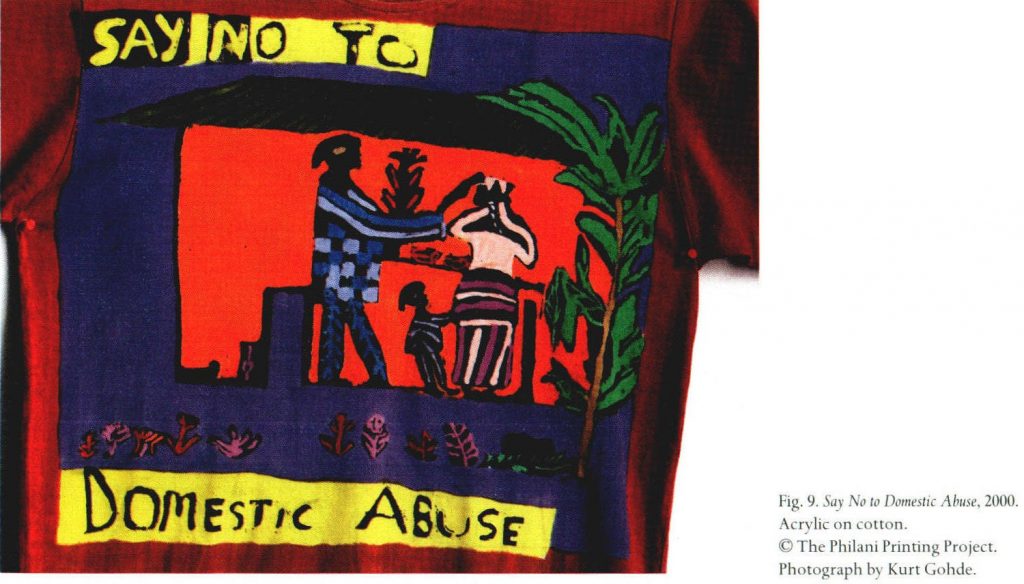
Ntsiki Stuurman
South African
Say No to Domestic Abuse
2000
Acrylic on cotton
The Philani Printing Project
Photograph by Kurt Gohde
Intrinsically connected to the degradation of women’s health, and by extension communal health, is domestic abuse. This work, created as part of The Philani Printing Project, directly condemns abuse as an inhibitor to public and domestic health.
In post-apartheid South Africa, violence––rape, murder, abuse––significantly deter communal health, both physically and psychologically. In this work, Stuurman depicts the murder of her friend, a victim of domestic abuse. Notably, the viewer observes the scene from outside the home, indicating the blurred lines and interconnectedness between public and private wellbeing.
Domestic abuse, like living with HIV/AIDS, is an illicit subject in South African townships. In creating the work, Stuurman and The Philani Printing Project provide a voice to the voiceless with a call to action.
Alexander Kogan ’20
Bibliography:
Idemudia, E. S. and S. Makhubela. “Gender Difference, Exposure to Domestic Violence and Adolescents’ Identity Development.” Gender and Behavior 9, no. 1 (2011): 3443-3465. http://search.ebscohost.com/login.aspx?direct=true&db=a9h&AN=64465266&site=ehost-live.
This article provides great insight into domestic abuse and domestic violence in South Africa. This background is critical in terms of understanding the context out of which some of the work from the Philani Printing Project, including Say No to Domestic Abuse, has grown.
Miller, Kimberly. “The Philani Printing Project: Women’s Art and Activism in Crossroads, South Africa.” Feminist Studies 29, no. 3 (Autumn 2003): 618-637. http://www.jstor.org/stable/3178728.
This article is immensely useful, insofar as it provides background and details of the Philani Printing Project. Say No to Domestic Abuse is actually referenced and discussed in this article, as well.
Miller, Kimberly. “The Philani printing project: women’s art and activism in Crossroads, South Africa.” PhD diss., University of Wisconsin–Madison, 2003.
Kimberly Miller’s full PhD thesis, a manuscript of which is actually housed at Bowdoin, is effectively a full, detailed investigation of the Philani Printing Project. In this sense, it is far richer in content than the article above, which just contains a few pages of thoughts.

